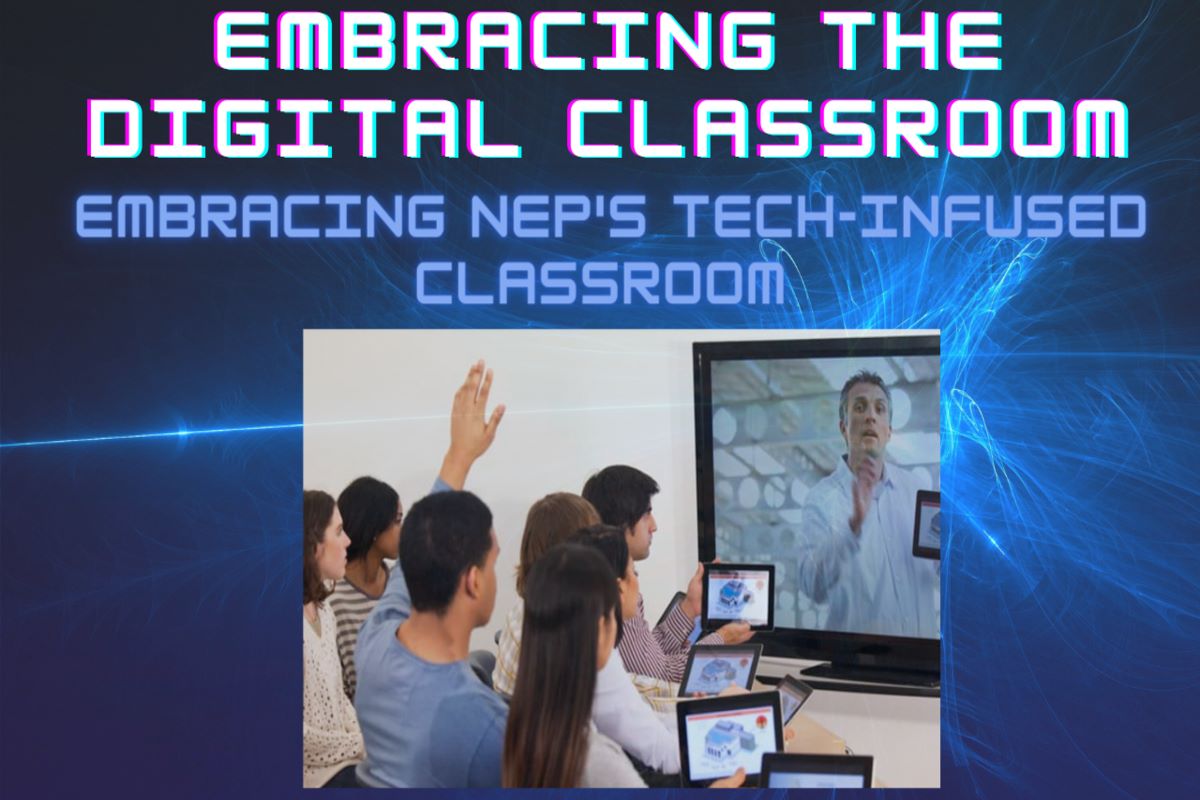Embracing the Digital Classroom: NEP's Call for Technology Integration in Education
By~ Scholar Planet
Created At: 28 Jul, 2023

In an ever-evolving world, where
technology continues to shape our lives, the realm of education cannot remain
immune to its transformative potential. The National Education Policy (NEP) of
India has recognized this paradigm shift and has placed a strong emphasis on
technology integration in education. This forward-thinking approach aims to
harness the power of technology to revamp pedagogical practices and elevate the
quality of education in the country. In this article, we will examine how the
NEP advocates for the integration of technology in education and discuss its
potential benefits and challenges.
The NEP underscores the
significance of technology in bridging the gap between traditional learning and
contemporary needs. By incorporating digital tools, software applications, and
internet-based resources, educators can deliver interactive and engaging
content to students. Technology integration holds immense potential to improve
the learning experience, fostering a deeper understanding of concepts and
enhancing students' critical thinking and problem-solving skills.
One of the prime benefits of
technology integration is its ability to personalize learning. Every student
has unique learning preferences and paces, and technology allows for adaptive
learning modules tailored to individual needs. With the help of artificial
intelligence and machine learning algorithms, educational platforms can analyse
students' progress and cater to their strengths and weaknesses accordingly,
fostering self-paced and effective learning.
Furthermore, technology
integration breaks the barriers of time and space in education. It enables
access to quality education even in remote and underserved areas. Virtual
classrooms, online courses, and e-learning modules empower students from
diverse backgrounds to gain knowledge and skills at their convenience,
democratizing education and promoting inclusivity.
The NEP also acknowledges the
potential of technology in enhancing teacher training and professional
development. Technology-based training programs allow educators to stay updated
with the latest teaching methodologies and best practices, fostering a
continuous learning culture among teachers.
However, despite the promising
potential, technology integration in education also poses a challenge that needs
to be addressed effectively and that is the digital divide. Despite significant
progress in technology penetration, there are still disparities in access to
digital devices and the internet, particularly in rural and economically
disadvantaged regions. To ensure equitable access, the government and
educational institutions must work collaboratively to bridge this divide
through infrastructure development and subsidization of digital resources.
Keeping the above in mind, we at
Scholar Planet have tried to do our bit. We have partnered with government
schools, Kendriya Vidyalaya, and MCD schools and have donated books, tablets
and other educational resources to them. This will help them come at par with
the other private schools of the country.
In
conclusion, the National Education Policy's advocacy for technology integration
in education is a significant step towards preparing the youth of India for a
technology-driven future. By working collaboratively and overcoming these
challenges, we can create a dynamic and future-ready educational landscape that
empowers students with the skills and knowledge needed to thrive in the 21st
century.
Download
our app: https://play.google.com/store/apps/details?id=com.gcap.jumbleword&hl=en_AU
